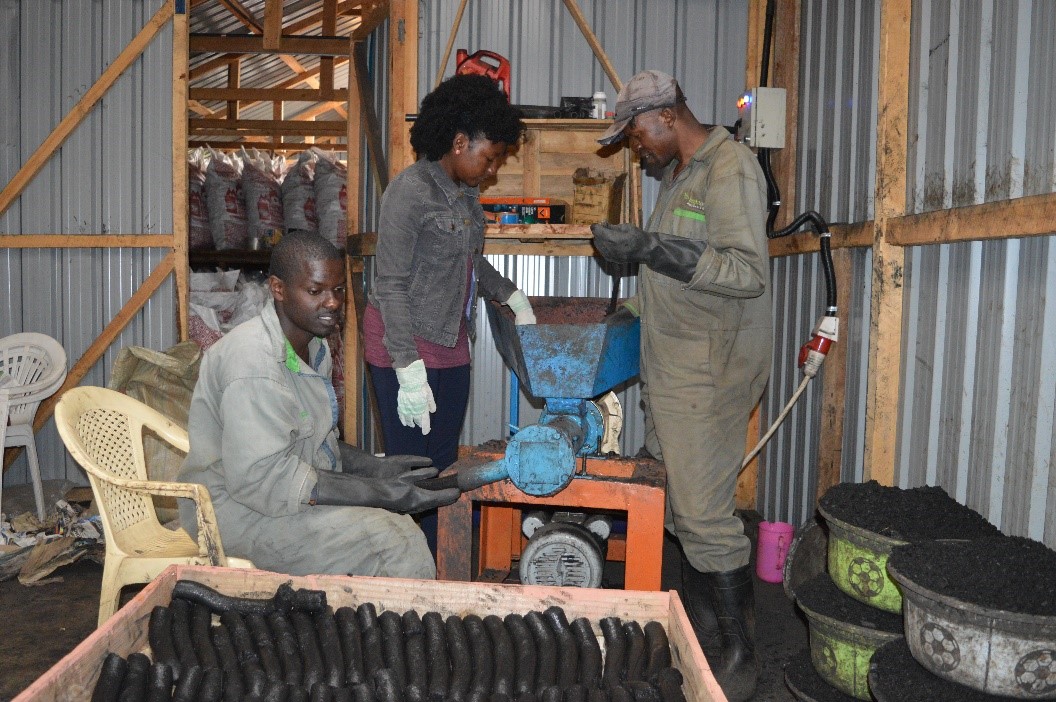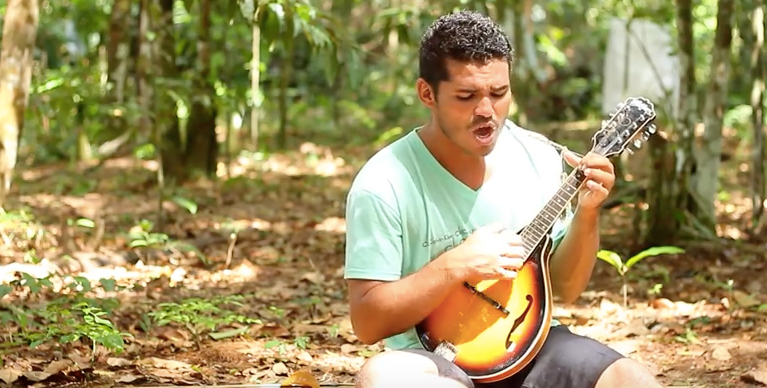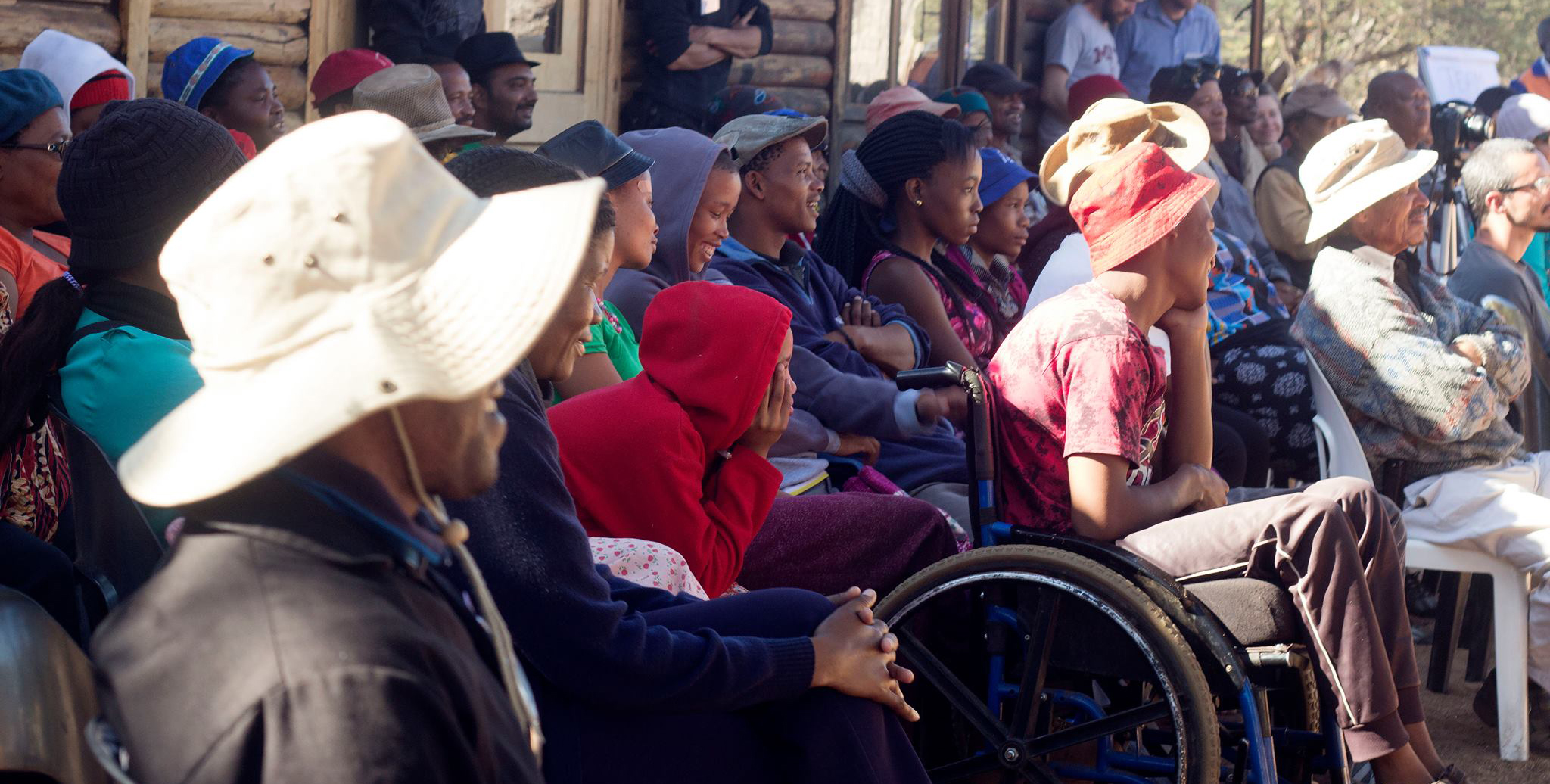UC Davis Blum Center Fellows Share Their Experience with IDIN Network Members

This summer, five students from the University of California-Davis D-Lab traveled abroad to learn from and assist various IDIN projects as a part of a fellowship with the Blum Center for Developing Economies Each student spent the month of August working with IDIN partners in Kenya, Tanzania, Uganda, or Brazil to advance a number of projects, and and kept a blog about their time with the projects.
Funke Aderonmu, another one of the summer fellows, spent the month of August working with IDIN Network member Chebat Lesan in Nairobi, Kenya for Chebet’s start-up, Bright Green Renewable Energy. Bright Green specializes in manufacturing clean burning charcoal briquettes.
Funke shares in her blog from the first days of her trip: “At the factory, various organic waste material and charcoal dust stuffed into multiple sacks sat along the wall of the production building. Wooden crates were lined up and spread out across most of the half acre of land where freshly made briquettes are placed to dry. From the raw materials in sacks to the drying crates to the production room, I explored the concrete manifestation of what CEO Chebet Lesan had imagined just over a year ago when she founded Bright Green.”
“As Chebet explained to me on my first day of work, Bright Green had been born out of the International Development Design Summit she had attended in Tanzania. Over the course of a month, Chebet worked with a team of innovators from MIT D-Lab to design a local solution that met the energy needs of a rural community near Mt. Kilimanjaro. After coming up with a design for eco-friendly briquettes the community could use for cooking without cutting down trees for wood, she decided to replicate this in the her urban community of Nairobi. Despite facing major startup challenges to make an organic, eco-friendly product that was also cheaper than the competition, she eventually established Bright Green in early 2015 and began producing briquettes.”
Tyler Jackson spent his August in Tanzania, working in Arusha and the surrounding areas with the Twende Social Innovation Center. His primary project was to gather and analyze survey data for local social venture Imaratech, founded by MIT D-Lab alumnus and Scale-Ups Fellow Elliot Avila. Imaratech produces the multi-crop thresher, a machine that can thresh maize and other crops at a rate 90 times faster than traditional methods. It improves the quality of life of farmers by reducing strenuous labor and strengthening local food security thanks to more efficient agricultural practices. Along with his work with local farmers, Tyler felt as if he was part of the community at Twende.
Tyler shares:“Every Wednesday they have a ‘happy-hour where they do a team building activity. This is help foster community at the center. They buy lunch for everyone and someone from the center leads an activity. It’s a nice mid-week break from working on compiling survey data. Everyone at Twende is very nice, and I have gotten used to getting around town on my own. I’ve even learned some useful phrases in Swahili. I’ve been invited to work at a conference next week and I’m looking forward to it!”
Abigail Lourenco and Theresa Mall spent their time in Uganda working on the Teso Women's Development Initiatives, also known as TEWDI. TEWDI’s work was the recipient of a D-Lab Scale-Ups Fellowship, and one of the many projects of IDIN Network member Betty lkalany. Outside of their work for the NGO, Theresa and Abigail got the opportunity to explore the natural beauty of Uganda.
On an excursion to Sipi Falls, Abigail shares: “Sipi Falls ended up being just as beautiful as it had been described to me. As we traveled up the mountain towards the site, the air grew clearer, the land became greener, and the soil turned a deep, deep red. We took our time visiting each of the three waterfalls, stopping to take way too many photos and to speak to the smiling kids that would come out of their homes to greet us, many carrying Gerry cans of water or bundles of sugarcane on their heads.”
These travel experiences were generously supported by the University California, Davis Blum Center for Developing Economies student grant program, Poverty Alleviation Through Action (PAGA).






